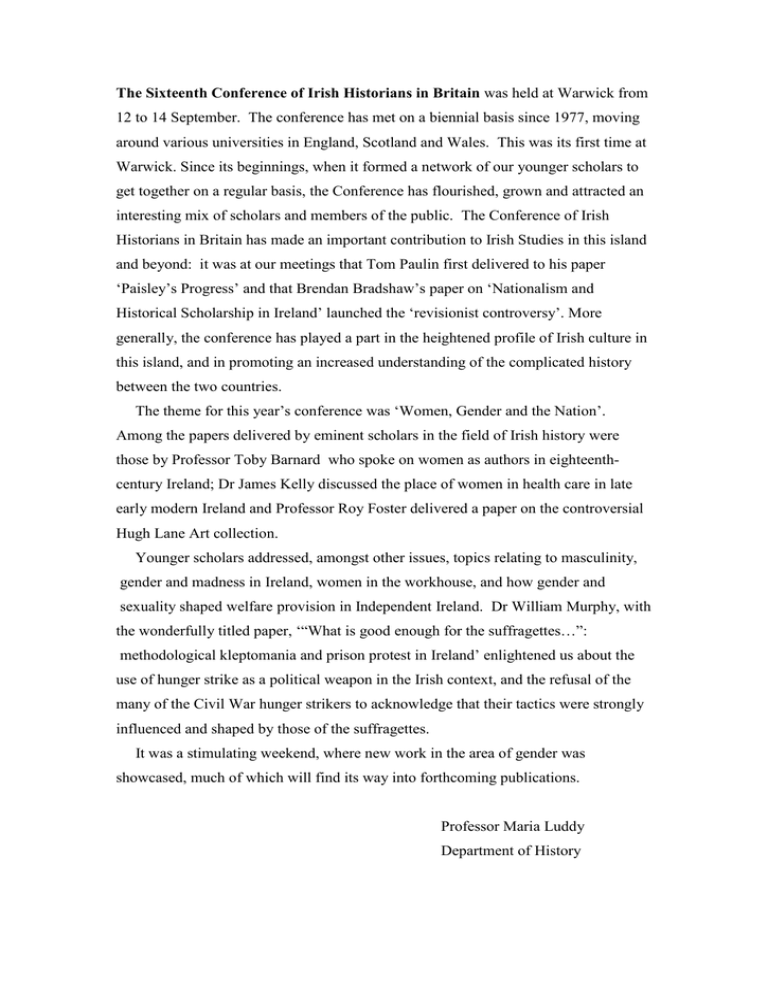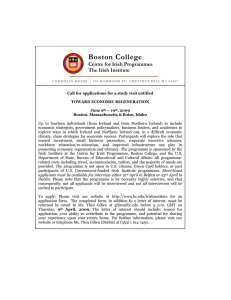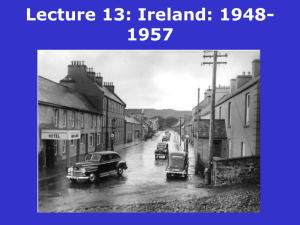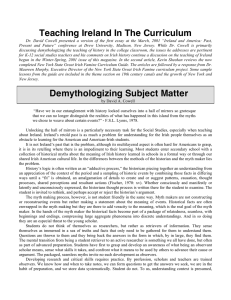The Sixteenth Conference of Irish Historians in Britain
advertisement

The Sixteenth Conference of Irish Historians in Britain was held at Warwick from 12 to 14 September. The conference has met on a biennial basis since 1977, moving around various universities in England, Scotland and Wales. This was its first time at Warwick. Since its beginnings, when it formed a network of our younger scholars to get together on a regular basis, the Conference has flourished, grown and attracted an interesting mix of scholars and members of the public. The Conference of Irish Historians in Britain has made an important contribution to Irish Studies in this island and beyond: it was at our meetings that Tom Paulin first delivered to his paper ‘Paisley’s Progress’ and that Brendan Bradshaw’s paper on ‘Nationalism and Historical Scholarship in Ireland’ launched the ‘revisionist controversy’. More generally, the conference has played a part in the heightened profile of Irish culture in this island, and in promoting an increased understanding of the complicated history between the two countries. The theme for this year’s conference was ‘Women, Gender and the Nation’. Among the papers delivered by eminent scholars in the field of Irish history were those by Professor Toby Barnard who spoke on women as authors in eighteenthcentury Ireland; Dr James Kelly discussed the place of women in health care in late early modern Ireland and Professor Roy Foster delivered a paper on the controversial Hugh Lane Art collection. Younger scholars addressed, amongst other issues, topics relating to masculinity, gender and madness in Ireland, women in the workhouse, and how gender and sexuality shaped welfare provision in Independent Ireland. Dr William Murphy, with the wonderfully titled paper, ‘“What is good enough for the suffragettes…”: methodological kleptomania and prison protest in Ireland’ enlightened us about the use of hunger strike as a political weapon in the Irish context, and the refusal of the many of the Civil War hunger strikers to acknowledge that their tactics were strongly influenced and shaped by those of the suffragettes. It was a stimulating weekend, where new work in the area of gender was showcased, much of which will find its way into forthcoming publications. Professor Maria Luddy Department of History











